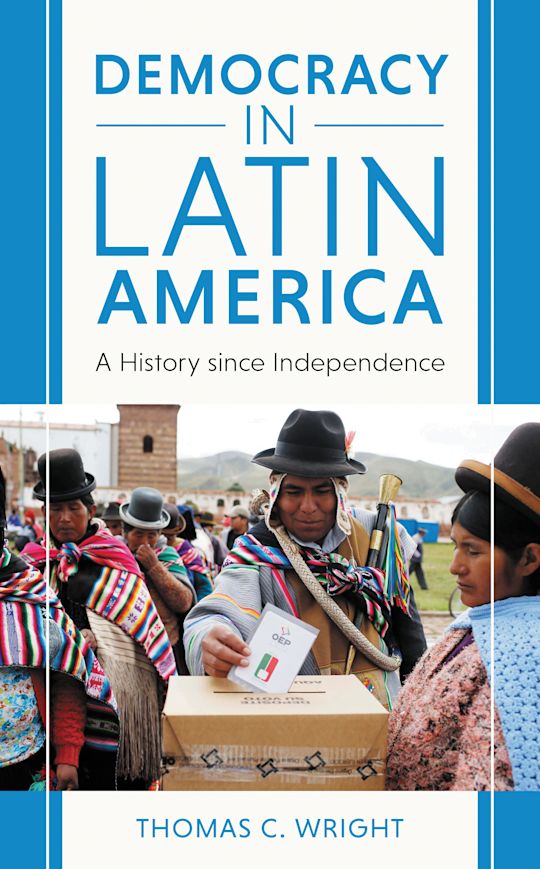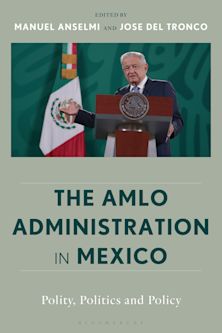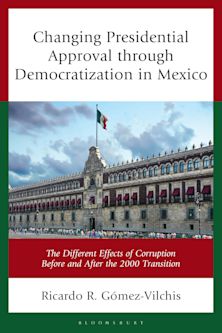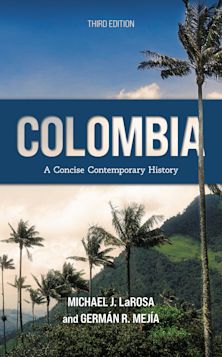Democracy in Latin America
A History since Independence
- Textbook
Democracy in Latin America
A History since Independence
- Textbook
This product is usually dispatched within 1 week
- Delivery and returns info
-
Free US delivery on orders $35 or over
Description
This book expertly traces the long, erratic, and incomplete path of Latin America’s political and socioeconomic democratization, from a group of colonies lacking democratic practice and culture up to the present. Using the lens of democracy defined by the charter of the Organization of American States (OAS), it examines the periods of US gunboat diplomacy in the Caribbean Basin, the Cold War, the state terrorist dictatorships of the 1970s and 1980s, the imposition of neoliberalism in the 1990s, and the rise of the Pink Tide in the new millennium.
The meaning of democracy has changed over time, from nineteenth-century liberalism—in which only a handful of wealthy males voted and individuals were responsible for their economic and social conditions—to governments in the late twentieth century that have embraced socioeconomic democracy by assuming responsibility (at least formally) for citizens’ welfare. Latin America’s movement toward democracy has not been linear. The book follows the appearance and evolution of both proponents and opponents of democracy over the last two centuries. The balance of these forces has shifted periodically, often in waves that swept across the entire region. Commitment to democracy does not guarantee implementation, but despite many setbacks, Latin America has made significant progress toward the democratic aspirations set forth in the OAS charter.
Thorough and accessibly written, Democracy in Latin America is an essential text for students studying Latin American politics and history.
Table of Contents
Acronyms
Maps
Introduction
Chapter 1: From Caudillos to Oligarchs, 1820s–1910s
Chapter 2: Early Democratization, 1900–1930
Chapter 3: Advances and Setbacks for Democracy, 1930–1948
Chapter 4 : Democracy in the Shadow of the Cold War, 1948–1958
Chapter 5: The Cuban Revolution and Democracy, 1959–1970
Chapter 6: Three Truncated Revolutions, 1968–1990
Chapter 7: The Eclipse of Democracy, 1969–1990
Chapter 8: Democratic Progress and Regression, 1978–2000
Chapter 9: Democracy in the New Millennium, 2000–Present
Final Observations
Select Bibliography: Books in English
Product details
| Published | Jan 16 2023 |
|---|---|
| Format | Hardback |
| Edition | 1st |
| Extent | 238 |
| ISBN | 9781538149331 |
| Imprint | Rowman & Littlefield Publishers |
| Illustrations | 35 b/w photos; 2 maps; 4 tables |
| Dimensions | 9 x 6 inches |
| Publisher | Bloomsbury Publishing |
Reviews

ONLINE RESOURCES
Bloomsbury Collections
This book is available on Bloomsbury Collections where your library has access.


































